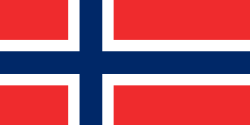Reports of FM’s death in Norway are premature. That’s according to the Norwegian Local Radio Association (NLF – Norse Lokalradio Forbund in Norwegian) which sent us a press release saying that 200 local commercial and community radio stations outside the country’s four largest cities will continue broadcasting in analog. Waves were made in the international press the last few days with the initial report that Norway will shut down FM radio service in 2017.
However, according to the NLF, only 23 local radio stations in Oslo, Bergen, Trondheim and Stavanger, along with major national broadcasters, will make the transition from analog to digital DAB broadcast. The group also highlights a recent report from the Government Statistical Bureau that says only 19% of listening is on broadcast DAB, below the 50% threshold set as a prerequisite for the change.
Apparently, the analog switch-off still requires approval in Parliament, where it has majority support, but opposition from the Progress Party–part of the governing coalition–and the Green Party. Part of the objection is based on claims by groups like the NLF saying DAB’s adoption was spurred by lobbying from the Digitalradio Norge AS company, not by consumer demand. That should sound familiar to HD Radio critics in the US.
There is also concern that foreign motorists from across Europe, where DAB penetration is much lower, will have no access to radio while visiting Norway’s major cities, cutting them off from news and information like traffic reports and emergency alerts.
I’ll admit that I was skeptical of the broad, sweeping claims of FM’s demise in Norway, especially since only the big national stations were mentioned in the Culture Ministry’s release. While I argued that the country is an outlier in making such a transition, I should have been more forthright in expressing my doubts that it would affect all FM stations.
Unfortunately, my inability to read Norwegian hampered my ability to do better research. That’s not an excuse, by the way. I have now found that Google Translate does a very good job with Norwegian.
Instead it’s just another lesson that I, and journalists in general, shouldn’t abandon our critical eye in the face of a juicy headline. I’ll keep a closer eye on what happens in Norway, because the political and regulatory aspects certainly hold lessons for communication policy in all countries.



